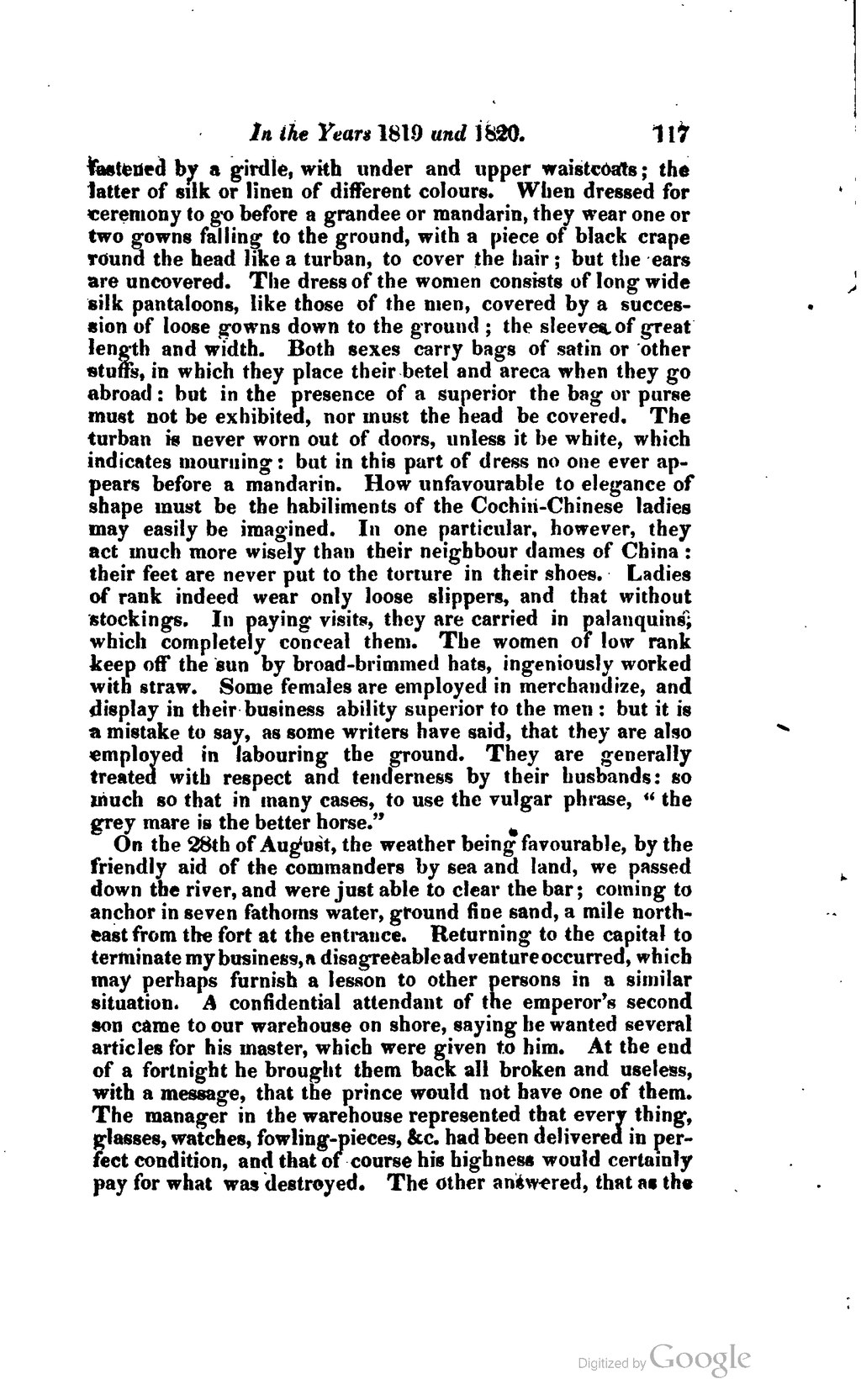fastened by a girdle, with under and upper waistcoats; the latter of silk or linen of different colours. When dressed for ceremony to go before a grandee or mandarin, they wear one or two gowns falling to the ground, with a piece of black crape round the head like a turban, to cover the hair; but the ears are uncovered. The dress of the women consists of long wide silk pantaloons, like those of the men, covered by a succession of loose gowns down to the ground; the sleeves of great length and width. Both sexes carry bags of satin or other stuffs, in which they place their betel and areca when they go abroad: but in the presence of a superior the bag or purse must not be exhibited, nor must the head be covered. The turban is never worn out of doors, unless it be white, which indicates mourning: but in this part of dress no one ever appears before a mandarin. How unfavourable to elegance of shape must be the habiliments of the Cochin-Chinese ladies may easily be imagined. In one particular, however, they act much more wisely than their neighbour dames of China: their feet are never put to the torture in their shoes. Ladies of rank indeed wear only loose slippers, and that without stockings. In paying visits, they are carried in palanquins, which completely conceal them. The women of low rank keep off the sun by broad-brimmed hats, ingeniously worked with straw. Some females are employed in merchandize, and display in their business ability superior to the men: but it is a mistake to say, as some writers have said, that they are also employed in labouring the ground. They are generally treated with respect and tenderness by their husbands: so much so that in many cases, to use the vulgar phrase, "the grey mare is the better horse."
On the 28th of August, the weather being favourable, by the friendly aid of the commanders by sea and land, we passed down the river, and were just able to clear the bar; coming to anchor in seven fathoms water, ground fine sand, a mile north-east from the fort at the entrance. Returning to the capital to terminate my business, a disagreeable adventure occurred, which may perhaps furnish a lesson to other persons in a similar situation. A confidential attendant of the emperor's second son came to our warehouse on shore, saying he wanted several articles for his master, which were given to him. At the end of a fortnight he brought them back all broken and useless, with a message, that the prince would not have one of them. The manager in the warehouse represented that every thing, glasses, watches, fowling-pieces, &c. had been delivered in perfect condition, and that of course his highness would certainly pay for what was destroyed. The other answered, that as the
